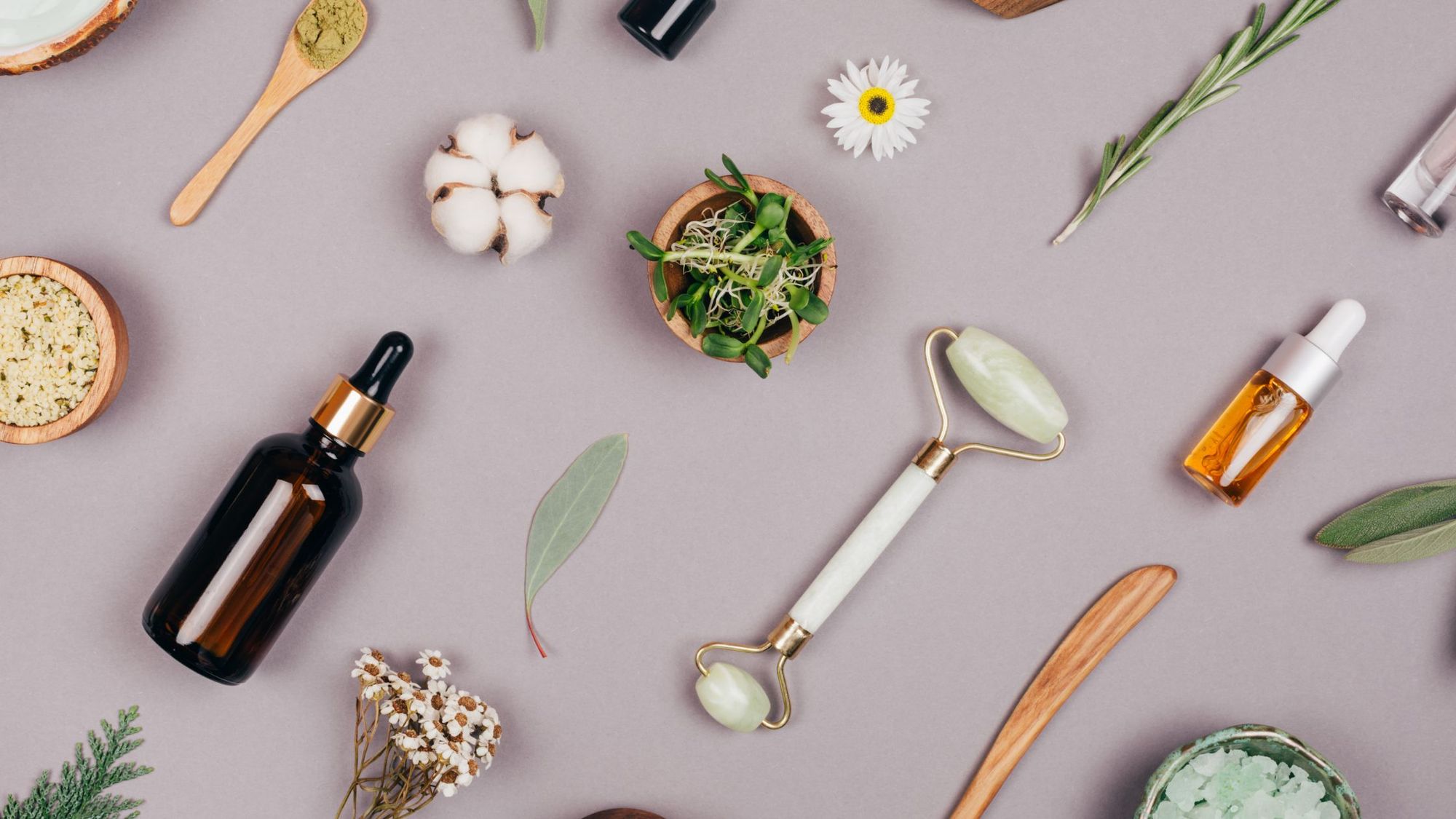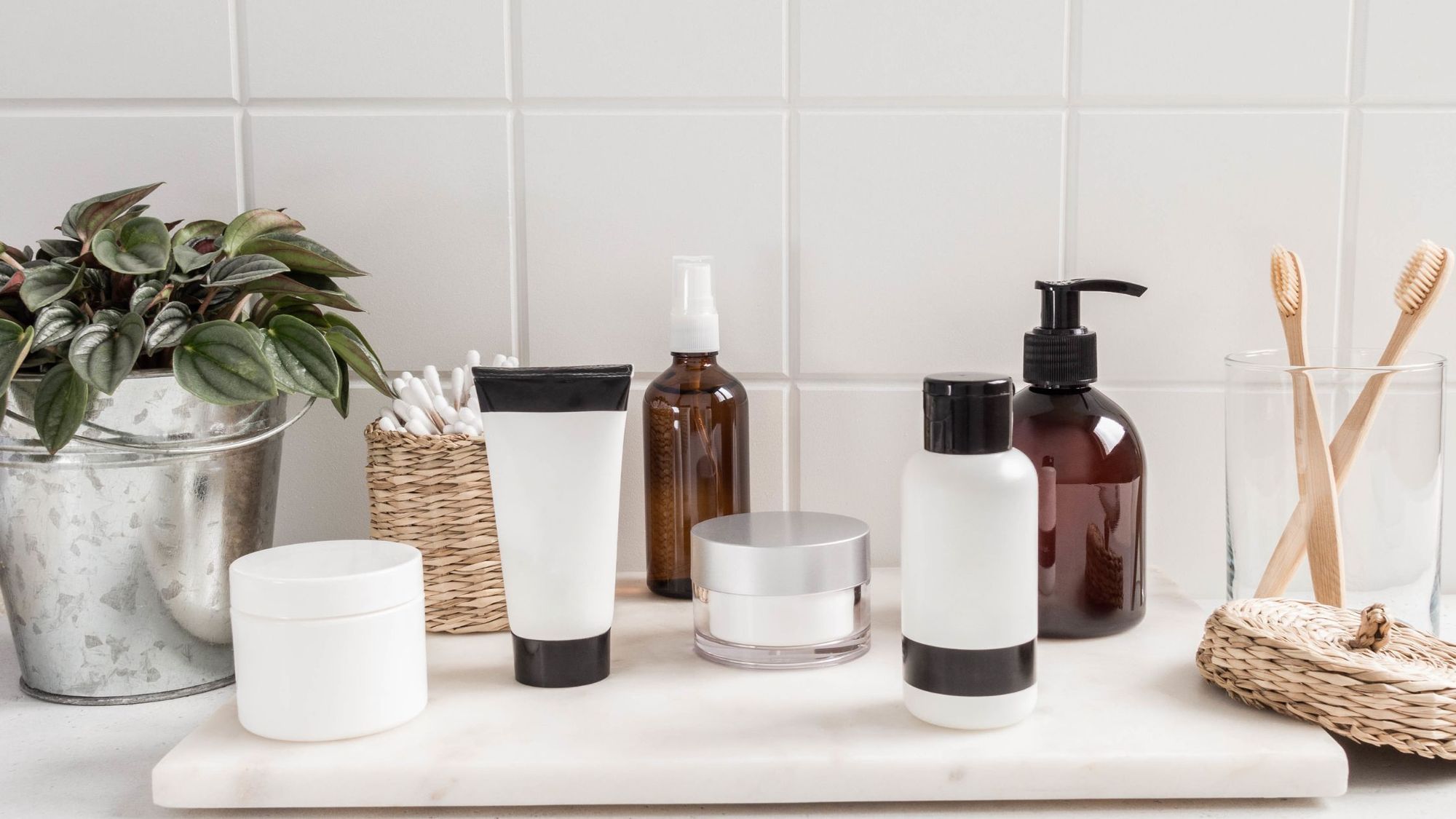
Skincare products shelf life isn’t something most people think about, although many of us should.
We know that food has an expiration date, but it’s easy to assume your moisturizer, foundation, or body scrub will last forever. Many of these items don’t even include an expiration date on the label, which can make it even easier to assume an old product is ‘still good’ to use.
However, most skincare products feature numerous ingredients which can begin to break down on a molecular level over time. Skincare products do in fact have a shelf life.
Even if your moisturizer looks and smells just as good as it did when you first bought it, the core ingredients could gradually become less effective, making them less valuable to your skincare routine. If your moisturizer smells different, that’s definitely a sign it could no longer be good to use.
Another problem when it comes to the issue of skincare products shelf life, is that expired skincare products can actually cause a number of problems for your skin. Bacteria building up in a scrub or face wash can irritate the skin, cause inflammation, and could even result in acne.
So, how do you know when it’s time to throw away your favorite skincare products? How do you know when skincare products shelf life is up, especially when there’s no expiration date on the product?

Skincare Products Shelf Life: Does Skincare Really Go Bad?
When it comes to skincare products, shelf life is something everyone should be aware of.
On a molecular level, many atoms can break down over time. Chemicals, organic compounds, and natural components eventually degrade through exposure to oxygen, heat, and other elements. Unfortunately, it’s not always easy to see when a skincare product has expired.
Even without best-before dates on packages of food, we can usually tell when a food product is no longer safe to consume. Most food has obvious odors and appearance changes when it’s gone bad, and there’s also a ton of food safety education available online. However, skincare products can be more deceptive when it comes to their shelf life. Sometimes, invisible bacteria could be thriving in your skin serums and creams, without your knowledge. One study even found 97.9% of women continue using makeup after its expiration date.
While using certain types of skincare items after their expiration date may not cause severe side effects, there’s always a risk. A build-up of bacteria can cause breakouts, rashes, and discomfort, particularly for people with more sensitive skin.
What’s more, expired skincare products are less effective than fresh alternatives. The primary ingredients you purchased your serums and lotions for, such as Vitamin C, Vitamin A and glycerin can break down over time, meaning you no longer get the benefit.
The degradation of active ingredients can be particularly dangerous when using certain skincare products, like sunscreens. If a sunscreen has expired, it may no longer be able to protect you from UV rays and skin damage.
Do Some Makeup and Skincare Products Go Bad Faster than Others?
The primary factors which influence a skincare product’s shelf life are time, humidity, temperature, and exposure to bacteria or outside elements. A moisturizer purchased for hot and humid weather and left out in the sun will expire faster than one you keep in your fridge.
The ingredients of your skincare product also play an important role. Many popular products today contain “active ingredients”, which only stay activated for so long. After a while, these substances lose their potency, regardless of whether preservatives have also been used in the product.
Water-based products are also more prone to spoilage from bacterial growth, particularly when they’re produced without preservatives. The excess moisture gives bacteria room to grow, and this can be exacerbated by exposure to heat and humidity.
Perhaps unsurprisingly, products with all-natural ingredients tend to go bad a lot quicker too. If you choose chemical and fragrance-free skincare, it may include ingredients such as flower extracts, aloe vera, and berries which will expire more rapidly than most chemicals.
Keep in mind, with skincare products, shelf life isn’t extended infinitely by preservatives. While preservatives are designed to ensure skincare substances can last longer, they too lose their efficacy with time.

How to Check a Skincare Product’s Shelf Life
There are a few ways to check a product’s shelf life, depending on what you purchase. Some items in the skincare landscape are required by the FDA to include an expiration date. These include products like acne treatments, sunscreens, and lotions with specialist active ingredients.
Many other lotions, creams, and foundations include a PAO symbol, which stands for Period After Opening. This symbol looks like an open jar with a number printed on it, alongside the letter “M” for Month, or “D” for Day.
The term stands for Period After Opening, and highlights how long your product should last after you’ve already removed the lid. For instance, a skincare product with a 6M symbol would generally last 6 months after being opened. Just keep in mind, your product may not last as long as intended if it’s exposed to other elements, like excess heat or moisture.
If your product doesn’t have a PAO symbol on the container, there may be a code included on the label which you can use to call the company and ask about expiration dates. There are also some calculators available online which can offer extra guidance.
For the most part, products without an expiration date will usually last one or two years on average, but you’ll need to use your best judgment to determine whether it’s still suitable to use. Subtle changes in texture, color or scent are often a big giveaway that a product has gone bad. If you notice any separation between ingredients, or discoloration, always throw your skincare away.
How Long Do Common Skincare Products Last?
Most popular skincare products are designed to last for a relatively long time, with the use of durable ingredients and sometimes additional preservatives. However, there are items which won’t last as long, such as all-natural skincare, products with active ingredients such as retinol, and one-use sample packets. Most one-use items will only last a day after opening.
Let’s take a look at some of the estimated lifespans of common skincare products.
· Moisturizers: Most moisturizers, when not made exclusively with organic ingredients, will last around one year or so. Unopened moisturizers can last a little longer, provided they’re in a container with a strong seal. Using moisturizers after their expiration dates means you’ll no longer benefit from active ingredients such as vitamin C and Vitamin E. Additionally, you could end up irritating your skin with exposure to bacteria.
· Serums: Many serums will include specialist ingredients and acids intended to assist with anti-aging and skin smoothing. Many serums also include ascorbic acid, which can break down rapidly when exposed to oxygen. Typically, these substances will last anywhere up to a year, but can go bad faster. Throw your product away if you notice any discoloration.
· Toners: This skincare product’s shelf life varies drastically depending on its ingredients. Many exfoliating toners include BHAs and AHAs which break down quite quickly. Toners also include a lot of water, which can make them more susceptible to bacteria growth. Expired toners can irritate your skin and cause rashes and dryness. If you notice a change to your toner’s smell, color, or texture, throw it away.
· Sunscreens: The majority of sunscreens will include an expiry date printed on the bottle. Sunscreen manufacturers are required to share their skincare products’ shelf life by the FDA. However, if you can’t find the date, most will last between one and three years. In most cases, it’s best to throw sunscreen away after one year, as the active ingredients used to protect your skin against the sun can begin to break down, making it less effective. Expired sunscreens often have an unusual smell, and may change color.
· Cleansers and washes: Face and body washes, cleansers, and similar products generally last up to 6 months at the most. They’re often water-based, which can mean they attract more bacteria than other substances. If you use cleansers after they’re expired, they’ll be more likely to cause irritation and discomfort due to bacteria.
Now that you know the shelf life of skincare products, you might reconsider buying huge bottles of skin cream etc, and purchase smaller containers instead.
How to Make Skincare Products Last Longer
Knowing your skincare product’s shelf life is important to ensuring you’re getting the most out of whatever it is you want to use.
All skincare products will eventually degrade. However, there are ways you can reduce the risk of your product going bad too quickly. For instance, keeping the container sealed until you plan on using it will ensure it’s not exposed to any bacteria or moisture. Closing all lids or caps properly after you’ve used the product will also minimize the risk of bacteria growth.
Another good way to prevent skincare products from losing their efficacy quickly, is to store them correctly. Keep skincare products out of direct sunlight, and away from excess heat. If you purchase all-natural and organic products, you may be advised to keep them in the refrigerator. Keep any other products in a cool, dry place, away from moisture and humidity.
It’s also worth thinking about how you use skincare products. If you’re dipping your finger into a pot of serum every time you use it, you’re exposing the ingredients to excess bacteria. Washing your hands before you use a product can help, but there’s still a risk of contamination. Using a spatula or a similar item could help to keep your serums and creams fresh.
Preserving Your skincare routine
Checking your skincare product’s shelf life ensures you can make the most of the serums, creams, moisturizers, and other items you purchase.
The right skincare can make a huge difference for your skin health, eliminating uncomfortable and itchy dry skin, preventing unwanted acne, and even protecting you from exposure to dangerous elements. With your CircleDNA test, you can get DNA insights about your skin, and learn what kind of skincare routine will work best for you. By reading about your genetic skin traits and skin health risks, you’ll be able to start building a more appropriate skincare plan for thriving, healthy, beautiful skin.
However, no matter what kind of skincare products you use, it’s worth remembering even the best skincare products are not designed to last forever. All ingredients will eventually degrade, especially active ingredients, and using skincare products after they’ve expired can cause more damage to your skin than you’d think.
Pay close attention to when you open and use your skincare products, and make a note of any expiry dates you can find.
References:
- NCBI: Investigation on the use of expired make-up and microbiological contamination of mascaras
https://pubmed.ncbi.nlm.nih.gov/23590385/ - Checkcosmetic: Calculator
https://checkcosmetic.net/ - Medlineplus: Ascorbic Acid (Vitamin C): MedlinePlus Drug Information
https://medlineplus.gov/druginfo/meds/a682583.html
https://my.dailyvanity.com/beauty-tips/shelf-life-of-skincare-products/
https://www.paulaschoice.co.uk/when-to-toss-out-beauty-products
